[ad_1]
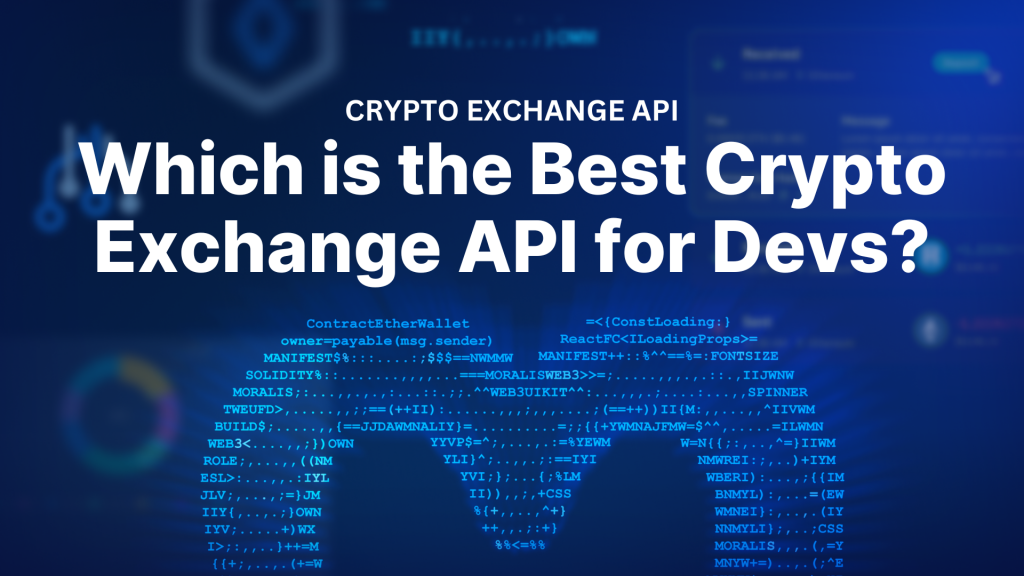
In today’s article, we’ll explore the best free crypto exchange API for developers. In doing so, we’ll introduce you to Moralis. Moralis is an industry-leading Web3 API provider, and in Moralis’ suite of premier interfaces, you’ll find the tools you need to build everything from your own crypto exchange to advanced analytics tools. For a sneak peek to briefly highlight the power and accessibility of Moralis, here are three prominent endpoints showcasing how easy it is to get on-chain data with our APIs:
getTokenPrice()– Get the price of any token:
const response = await Moralis.EvmApi.token.getTokenPrice({ "chain": "0x1", "address": "0x7d1afa7b718fb893db30a3abc0cfc608aacfebb0" }); getNativeBalance()– Fetch the native balance of any wallet:
const response = await Moralis.EvmApi.balance.getNativeBalance({ "chain": "0x1", "address": "0xDC24316b9AE028F1497c275EB9192a3Ea0f67022" }); getWalletTokenBalances()– Query the token balances of any wallet:
const response = await Moralis.EvmApi.token.getWalletTokenBalances({ "chain": "0x1", "address": "0x1f9090aaE28b8a3dCeaDf281B0F12828e676c326" }); To learn more about the crypto exchange API capabilities of Moralis, join us in this article as we explore a few interfaces, cover more prominent endpoints, and give you a tutorial on how to build a decentralized exchange (DEX) with our premier development tools!
Also, if you want to use all APIs yourself, don’t forget to sign up with Moralis. You can create your account for free, and you’ll gain immediate access to our interfaces so you can build Web3 projects faster and smarter!
Overview
The Web3 sector boasts a plethora of cryptocurrency exchange APIs designed to help you with everything from automating trades to building your own exchange platforms. Some prominent examples include the Binance API, Coinbase API, and Kraken API. However, when it comes to crypto exchange APIs for developers, Moralis clearly stands out as the industry’s premier option. But why is that? What makes Moralis so unique? For the answers to these questions, join us in this article as we take a deep dive into Moralis’ Web3 API suite!
To kickstart this article, we’ll dive straight into the intricacies of Moralis. In doing so, we’ll cover three examples of prominent interfaces highlighting Moralis’ capabilities as a free crypto exchange API for developers. From there, we’re going to explore a few benefits of working with Moralis. Next, we’ll jump into our tutorial and show you how to build your own DEX. Lastly, to top things off, we’ll explore three Moralis API use cases.

Furthermore, if you’re new to Web3 and don’t know what either crypto exchanges or APIs are, fear not. We have dedicated a few sections towards the end of the article to explain the intricacies of these topics. As such, if you’re unfamiliar with the space or just want to refresh your memory, we recommend starting with the ”What is a Cryptocurrency Exchange?” section.
Otherwise, join us as we jump into the best free crypto exchange API provider: Moralis!
Which is the Best Crypto Exchange API? – Introducing Moralis
There are multiple crypto exchange APIs for you to choose from; however, at the top of the list, you’ll find Moralis’ Web3 API suite. But what is Moralis? And what makes Moralis the best free crypto exchange API provider?
Well, to answer the questions above, we’ll kickstart this article by diving straight into the intricacies of Moralis!
Moralis is an industry-leading Web3 API provider, and in our suite of premier interfaces, you’ll find tools for multiple use cases. Consequently, when working with Moralis, you can build everything from your own cryptocurrency exchange to advanced trading and analytics tools without breaking a sweat.
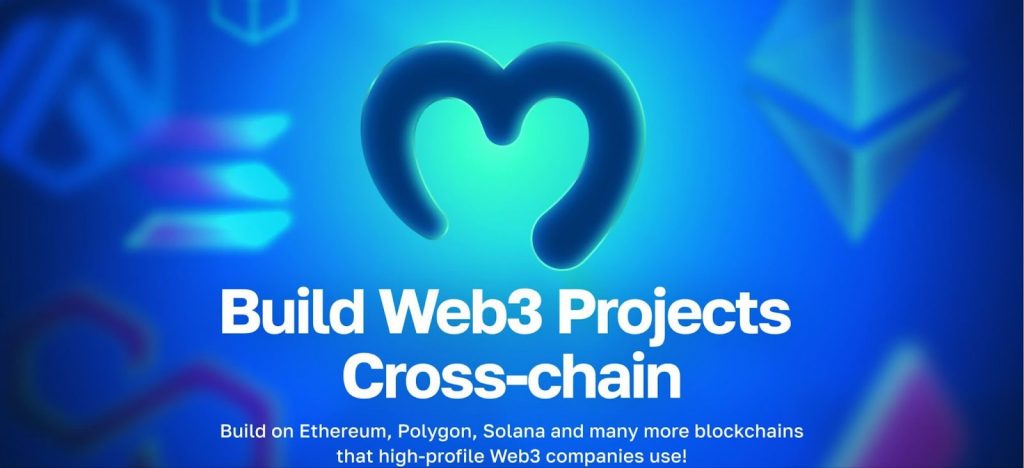
Moralis’ API suite comprises multiple prominent interfaces, and here’s a list of three notable examples:
- Token API
- Wallet API
- Streams API
In the following subsections, we’ll explore these three interfaces in more detail to highlight Moralis’ capabilities as a crypto exchange API!
Token API
Moralis’ Token API is the industry’s premier tool for ERC-20 token data. With this interface, you can effortlessly fetch and integrate token prices, wallet balances, transfers, metadata, and much more with only single lines of code!
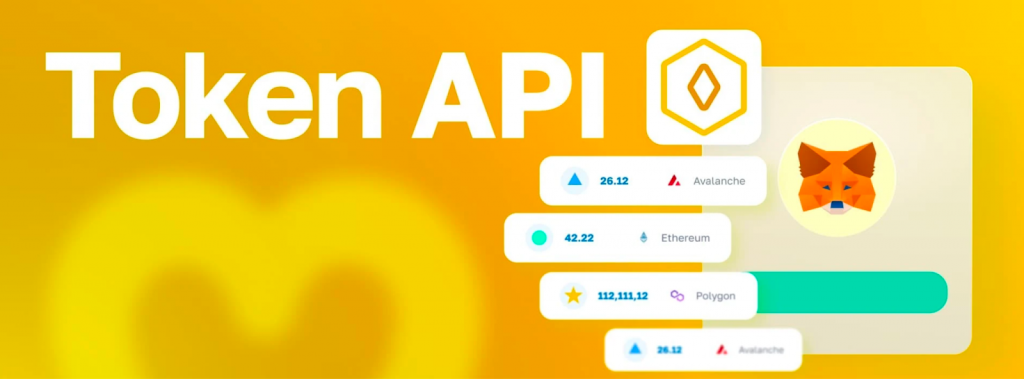
What’s more, the Token API offers unparalleled coverage, supporting every single token across all major blockchain networks, including Ethereum, BNB Smart Chain (BSC), Polygon, and many others. As such, with this tool, you get everything in terms of token data you need to build cryptocurrency exchanges, trading tools, analytics platforms, and much more.
So, how does the Token API work?
To answer the query above, let’s look at three prominent endpoints you’ll likely find helpful in your development endeavors:
getTokenPrice() / get_token_price()
With the getTokenPrice() (NodeJS) and get_token_price() (Python) endpoints, you can get the price of a token denominated in the blockchain’s native currency and USD:
NodeJS:
const response = await Moralis.EvmApi.token.getTokenPrice({ "chain": "0x1", "address": "0x7d1afa7b718fb893db30a3abc0cfc608aacfebb0" }); Python:
params = { "chain": "eth", "address": "0x7d1afa7b718fb893db30a3abc0cfc608aacfebb0" } result = evm_api.token.get_token_price( api_key=api_key, params=params, ) getPairAddress() / get_pair_address()
With the getPairAddress() (NodeJS) and get_pair_address() (Python) endpoints, you can query the pair address of any token combination from a given exchange:
NodeJS:
const response = await Moralis.EvmApi.defi.getPairAddress({ "chain": "0x1", "exchange": "uniswapv2", "token0Address": "0x2b591e99afe9f32eaa6214f7b7629768c40eeb39", "token1Address": "0xdac17f958d2ee523a2206206994597c13d831ec7" }); Python:
params = { "chain": "eth", "exchange": "uniswapv2", "token0_address": "0x2b591e99afe9f32eaa6214f7b7629768c40eeb39", "token1_address": "0xdac17f958d2ee523a2206206994597c13d831ec7" } result = evm_api.defi.get_pair_address( api_key=api_key, params=params, ) getWalletTokenBalances() / get_wallet_token_balances()
With the getWalletTokenBalances() (NodeJS) and get_wallet_token_balances() (Python) endpoints, you can fetch the token balances for any wallet on any chain:
NodeJS:
const response = await Moralis.EvmApi.token.getWalletTokenBalances({ "chain": "0x1", "address": "0x1f9090aaE28b8a3dCeaDf281B0F12828e676c326" }); Python:
params = { "chain": "eth", "address": "0x1f9090aaE28b8a3dCeaDf281B0F12828e676c326" } result = evm_api.token.get_wallet_token_balances( api_key=api_key, params=params, ) Wallet API
The Wallet API supports 500+ million addresses across all the biggest blockchains. And with this premier interface, you can seamlessly get wallet balances, transfers, native transactions, internal transactions, and much more!
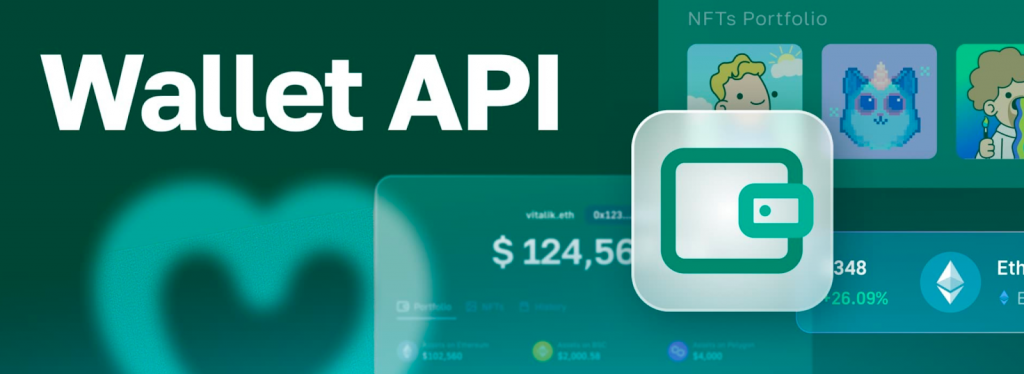
The features and capabilities of the Wallet API make this the perfect tool if you want to get into crypto wallet development or simply want to integrate wallet functionality into a crypto exchange, token analytics tool, or any other platform.
To showcase the power of the Wallet API, let’s explore three prominent endpoints:
getNativeBalance() / get_native_balance()
With the getNativeBalance() (NodeJS) and get_native_balance() (Python) endpoints, you can get the native balance of any Web3 wallet:
NodeJS:
const response = await Moralis.EvmApi.balance.getNativeBalance({ "chain": "0x1", "address": "0xDC24316b9AE028F1497c275EB9192a3Ea0f67022" }); Python:
params = { "chain": "eth", "address": "0xDC24316b9AE028F1497c275EB9192a3Ea0f67022" } result = evm_api.balance.get_native_balance( api_key=api_key, params=params, ) getWalletNFTs() / get_wallet_nfts()
With the getWalletNFTs() (NodeJS) and get_wallet_nfts() (Python) endpoints, you can fetch an array of all NFTs held by the specified wallet:
NodeJS:
const response = await Moralis.EvmApi.nft.getWalletNFTs({ "chain": "0x1", "address": "0xff3879b8a363aed92a6eaba8f61f1a96a9ec3c1e" }); Python:
params = { "chain": "eth", "address": "0xff3879b8a363aed92a6eaba8f61f1a96a9ec3c1e" } result = evm_api.nft.get_wallet_nfts( api_key=api_key, params=params, ) getWalletStats() / get_wallet_stats()
With the getWalletStats() (NodeJS) and get_wallet_stats() (Python) endpoints, you can query the stats for a wallet, including the number of NFTs, collections, fungible tokens, etc:
NodeJS:
const response = await Moralis.EvmApi.wallets.getWalletStats({ "chain": "0x1", "address": "0x1f9090aaE28b8a3dCeaDf281B0F12828e676c326" }); Python:
params = { "chain": "eth", "address": "0x1f9090aaE28b8a3dCeaDf281B0F12828e676c326" } result = evm_api.wallets.get_wallet_stats( api_key=api_key, params=params, ) Streams API
Moralis’ Streams API is the ultimate tool for Web3 alerts. With this industry-leading interface, you can effortlessly set up streams to get real-time updates sent directly to the backend of your projects via Web3 webhooks!
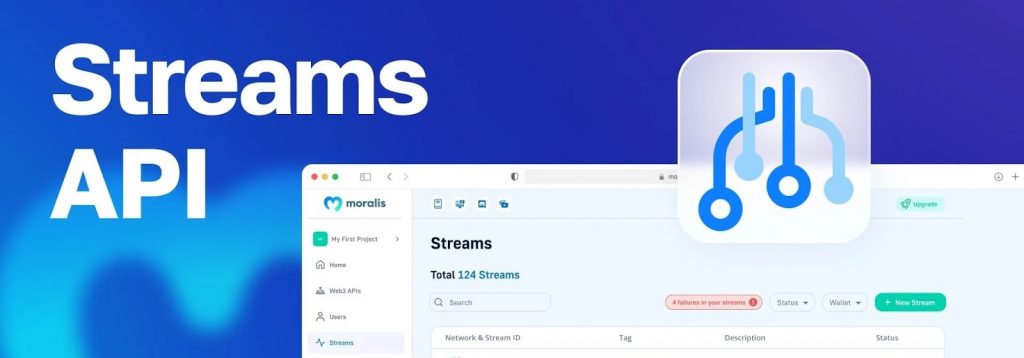
Furthermore, the Streams API supports over 44 million addresses and all types of events, NFTs, smart contracts, wallets, etc. As such, this is the perfect tool if you want to set up notifications for important on-chain events. This includes everything from tokens hitting price targets to crypto whales buying/selling tokens.
That said, how does the Streams API work?
Well, you can seamlessly set up a stream in three straightforward steps:
- Configure Your Stream – Choose chains, add a webhook destination, and decide what events you want to listen to:
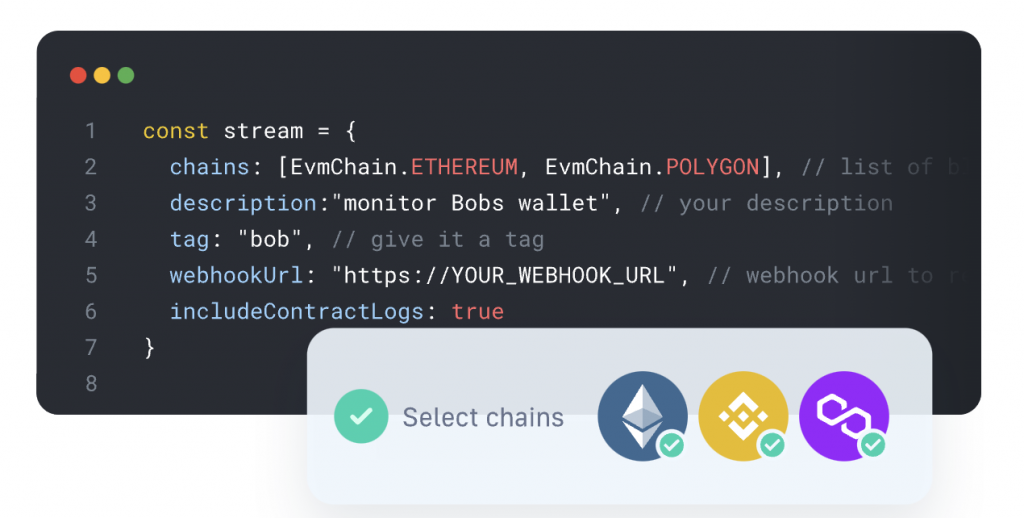
- Add the Stream – Add the stream and receive a test webhook in return:
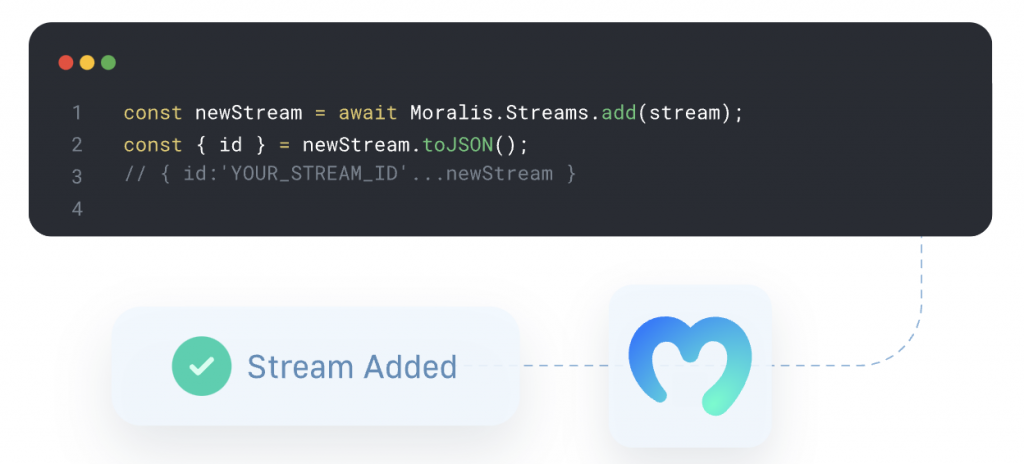
- Add Addresses to the Stream – Add the addresses you want to monitor to the stream:
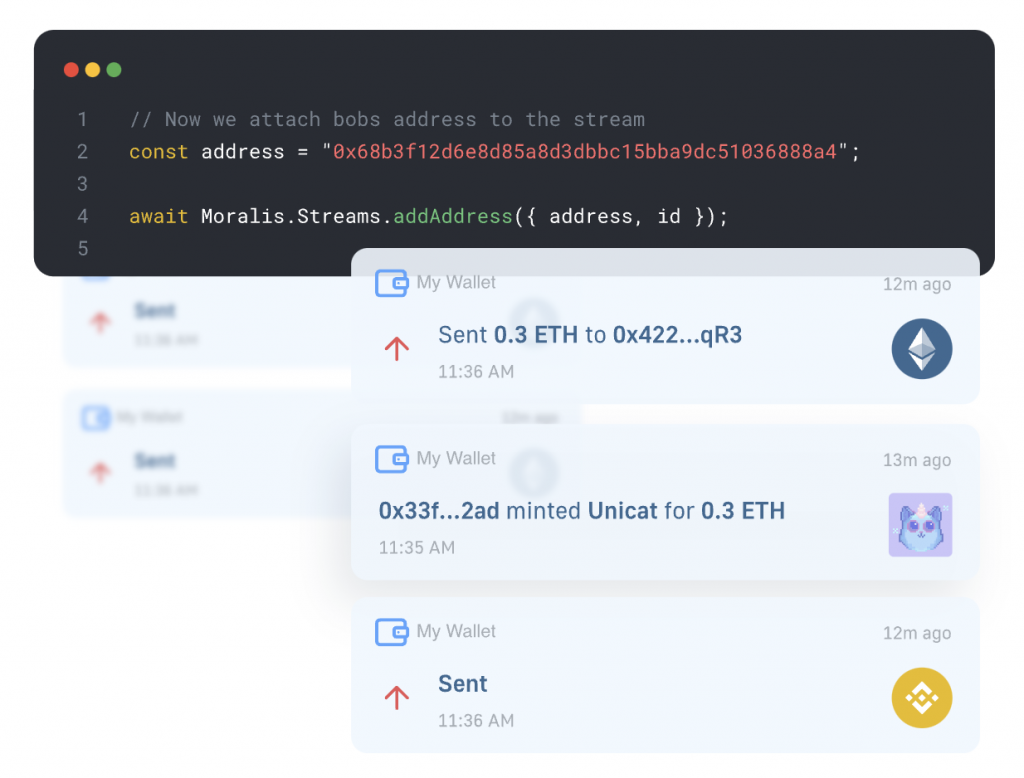
That’s it; for a more in-depth guide on using the Streams API, check out our article on how to build an on-chain wallet tracker!
Also, the Token API, Wallet API, and Streams API are only a few examples of prominent Moralis tools you can use as crypto exchange APIs. If you want to explore them all, check out our Web3 API page!
Why is Moralis the Best Crypto Exchange API Provider?
Now, with an overview of Moralis’ capabilities as a free crypto exchange API, you might be asking yourself, ”Why should I choose Moralis over any other provider?”.
To answer the question above, let’s look at five prominent benefits of Moralis’ Web3 APIs:
- Top Performance: Moralis’ API suite offers top performance. Choose any metric – whether you want to judge by speed, reliability, features, etc. – our APIs blow the competition out of the water.
- Diverse Tool Set: Moralis provides many industry-leading interfaces for multiple use cases, allowing you to implement a diverse set of features into your projects. This makes our API suite ideal if you want to build sophisticated platforms like a crypto exchange.
- Cross-Chain Compatibility: Moralis’ Web3 APIs are cross-chain compatible and support all significant blockchains, including Ethereum, BSC, Polygon, Gnosis, and many others.

- Coverage: In addition to support for all major chains, Moralis also lets you fetch things like price data from multiple exchanges, including Uniswap, PancakeSwap, SushiSwap, etc. This means that Moralis is able to provide unparalleled coverage compared to competitors that only focus on individual exchanges and chains.
- Trusted by Industry Leaders: Some of the biggest names in Web3 already leverage Moralis. Prominent examples include MetaMask, Polygon, Opera, Delta, and others.

Nevertheless, to further highlight Moralis’ capabilities as a free crypto exchange API, we’ll show you how to build a decentralized exchange (DEX) with our industry-leading tools in the next section!
Crypto Exchange API Tutorial: How to Build a Cryptocurrency Exchange
Now that you have familiarized yourself with Moralis’ Web3 API suite let’s look at how you can use our tools to build your very own crypto exchange. More specifically, we’ll show you how to build a DEX in no time!
However, instead of outlining a bunch of broad steps in this article, we’ll hand you over to one of our talented software engineers, who will be walking you through the entire process from start to finish. So, if you want to learn more about building DEXs, check out the following Moralis YouTube video:
Also, if you want to immediately look at the crypto exchange code and examine how we used the Moralis API suite that way, feel free to check out the GitHub repository below:
GitHub Repo for Crypto Exchange API Tutorial – https://github.com/IAmJaysWay/dexFinal
Moralis API Use Cases
Now, with a better understanding of the power of Moralis’ Web3 API suite, let’s briefly explore three prominent use cases:
- Cryptocurrency Exchanges: Thanks to the diversity of Moralis’ Web3 API suite, you have all the tools you need to build your own crypto exchange. For instance, with the Token API, you can fetch all the token data you need. With the Streams API, you can keep your users updated. And with the Wallet API, you can effortlessly implement wallet functionality into your platform!
- Token Trackers: With Moralis, you can also seamlessly build your own token tracker to monitor any fungible or non-fungible token. Moreover, with the Streams API, you can incorporate real-time alerts so you don’t miss a beat.
- Web3 Analytics Tools: With the capabilities of Moralis Web3 developer tools, you can also build sophisticated analytics platforms. A great example is Moralis Money, an industry-leading token explorer powered by Moralis’ APIs.
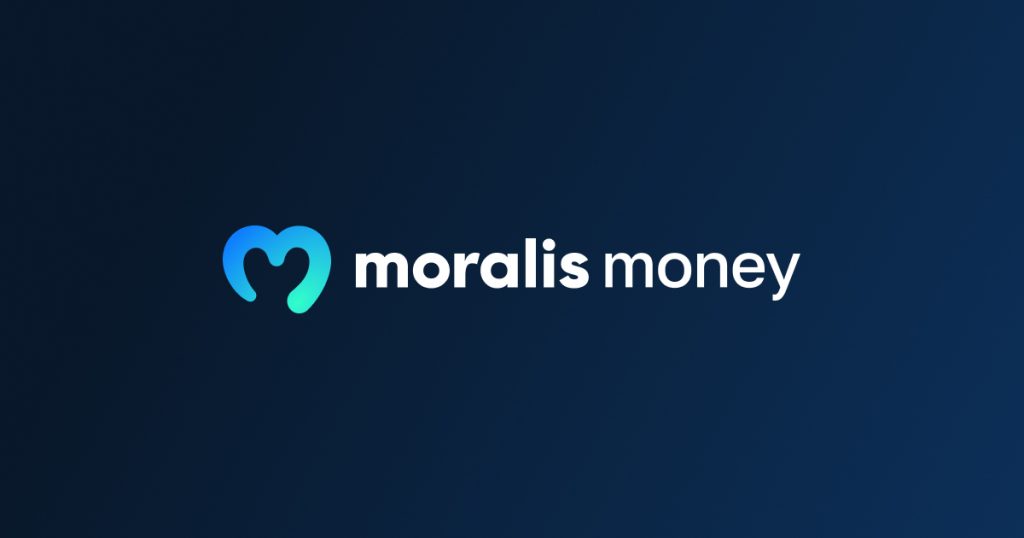
Nevertheless, these are only three prominent examples, and you can build a lot more with our industry-leading Web3 data tools!
What is a Cryptocurrency Exchange?
Cryptocurrency exchanges are digital platforms for storing, selling, buying, and swapping crypto like ETH, USDT, and BNB. There are hundreds of crypto exchanges on the market today, and a few examples include Uniswap, PancakeSwap, Coinbase, and Binance!
In combination with the functionality for selling, buying, storing, and swapping cryptocurrencies, some exchanges also offer more advanced features, such as in-depth analytics charts and tools, derivatives trading, options trading, and so on.
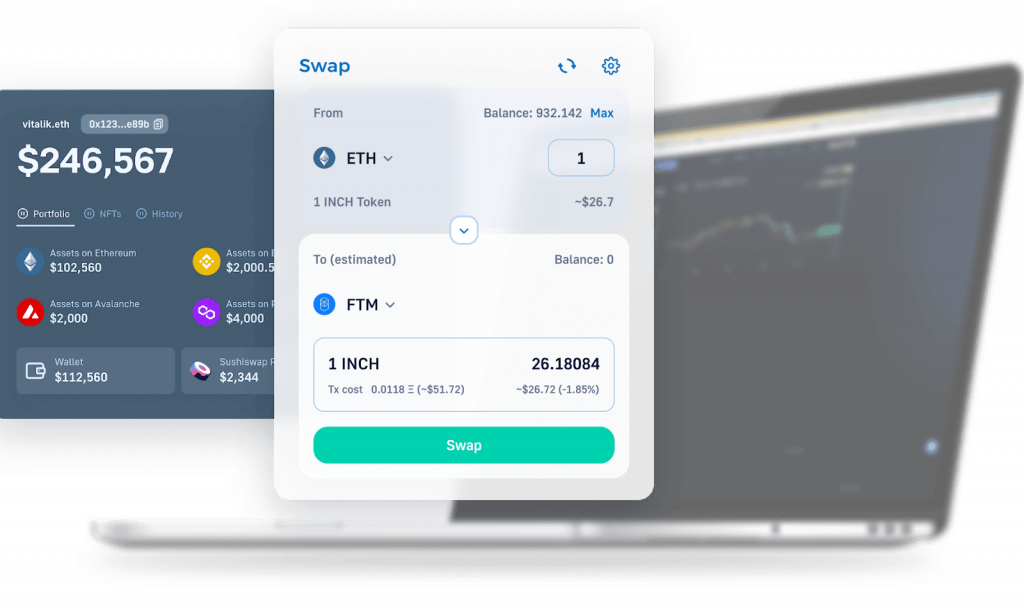
Also, did you know that there are multiple different types of cryptocurrency exchanges? If you want to learn more about this, join us in the next section as we explore the two most common types!
Different Types of Exchanges
The two most common types of cryptocurrency exchanges are centralized and decentralized exchanges. As such, in this section, we’ll dive deeper into each type to highlight their strengths and weaknesses!
Centralized Exchanges (CEXs)
On centralized exchanges (CEXs), you deposit your cryptocurrency to an account held by the platforms. These platforms then act as intermediaries between buyers and sellers. For instance, if you wish to trade BTC for ETH, the CEX facilitates the process and supplies the liquidity to make the trade possible.
What’s more, CEXs typically feature user-friendly interfaces, making it more accessible for new users to buy, sell, and trade cryptocurrencies. In addition, these platforms often work with regulators to stay compliant with laws. And they also provide features that decentralized exchanges don’t always do – such as customer support and fiat on-ramps.
All in all, CEXs usually offer easy-to-use interfaces and straightforward features for buying cryptocurrencies with fiat money, making them quite suitable for beginners. However, the biggest critique against CEXs is that the user funds are managed in a centralized manner.
Decentralized Exchanges (DEXs)
Decentralized exchanges (DEXs) allow you to make direct peer-to-peer (P2P) cryptocurrency transactions while remaining in complete control of your private keys. As such, when using a DEX, there’s no need to deposit your funds into an exchange account. Instead, you simply approve transactions using self-custodial wallets like MetaMask or Coinbase Wallet.
DEXs typically automatically determine the price of cryptocurrencies using automated market maker algorithms based on supply and demand. And the liquidity on these platforms is provided by other cryptocurrency investors.
In sum, DEXs facilitate P2P cryptocurrency trading without a central authority acting as intermediaries. However, the drawback of DEXs is that they often feature difficult-to-use interfaces, making them somewhat ill-suited for beginner traders.
What is a Crypto Exchange API?
A crypto exchange API – short for ”application programming interface” – is a set of rules, protocols, and methods that allow you to effortlessly interact with exchanges and blockchain networks to integrate data and various features into your projects. Essentially, a crypto exchange API makes the process of automating trades, integrating features, and even building your own exchange platforms a breeze!
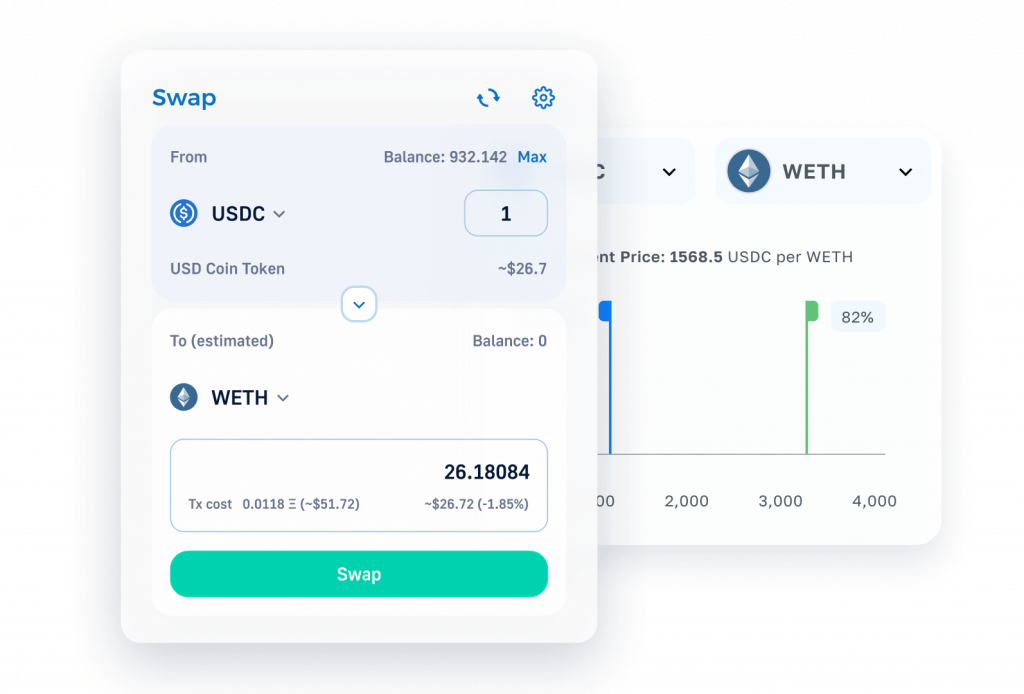
Also, since you can leverage premade methods and protocols with a crypto exchange API, you don’t have to reinvent the wheel in your development endeavors. Consequently, with a crypto exchange API, you can build both faster and smarter, allowing you to effortlessly save development time and resources.
So, if you are, for instance, planning to build your own crypto exchange, make sure to use an API provider like Moralis!
Summary: Exploring the Best Crypto Exchange API
In today’s article, we introduced you to the industry’s best crypto exchange API provider: Moralis. With Moralis’ Web3 API suite, you get all the tools you need to build everything from advanced trading and analytics platforms to your own crypto exchange!
Moralis’ suite of Web3 APIs comprises multiple industry-leading interfaces, and you’ll find a few examples we covered below:
- Token API
- Wallet API
- Streams API
In addition to exploring various APIs, we also explained why Moralis stands out as the best free crypto exchange API provider. In doing so, we learned that Moralis offers a diverse set of top-performing, cross-chain compatible APIs trusted by industry leaders such as MetaMask, Polygon, and Opera.

We also showed you how to build a DEX using Moralis. And if you want to explore the code of the final product, you’ll find the GitHub repository in the “Crypto Exchange API Tutorial…” section!
If you found this crypto exchange article interesting, check out more content here on Moralis. For instance, explore DeFi dapp development or learn what Web3 as a service entails. Also, if you want to explore decentralized applications (dapps), development frameworks, and other Web3 creator tools, make sure to check out Moralis’ dapp store: Web3 Wiki!
Don’t forget to sign up with Moralis if you want to leverage our Web3 APIs in your development endeavors to build faster and more efficiently!
[ad_2]
Read More: moralis.io








 Bitcoin
Bitcoin  Ethereum
Ethereum  Tether
Tether  XRP
XRP  Solana
Solana  USDC
USDC  TRON
TRON  Dogecoin
Dogecoin  Lido Staked Ether
Lido Staked Ether  Cardano
Cardano  Wrapped Bitcoin
Wrapped Bitcoin  Hyperliquid
Hyperliquid  Wrapped stETH
Wrapped stETH  Sui
Sui  Bitcoin Cash
Bitcoin Cash  Chainlink
Chainlink  LEO Token
LEO Token  Stellar
Stellar  Avalanche
Avalanche  Toncoin
Toncoin  USDS
USDS  WhiteBIT Coin
WhiteBIT Coin  Shiba Inu
Shiba Inu  Wrapped eETH
Wrapped eETH  WETH
WETH  Litecoin
Litecoin  Binance Bridged USDT (BNB Smart Chain)
Binance Bridged USDT (BNB Smart Chain)  Hedera
Hedera  Monero
Monero  Ethena USDe
Ethena USDe  Polkadot
Polkadot  Bitget Token
Bitget Token  Coinbase Wrapped BTC
Coinbase Wrapped BTC  Uniswap
Uniswap  Pepe
Pepe  Pi Network
Pi Network  Aave
Aave  Dai
Dai  Ethena Staked USDe
Ethena Staked USDe  Bittensor
Bittensor  OKB
OKB  BlackRock USD Institutional Digital Liquidity Fund
BlackRock USD Institutional Digital Liquidity Fund  Aptos
Aptos  Cronos
Cronos  Internet Computer
Internet Computer  NEAR Protocol
NEAR Protocol  Jito Staked SOL
Jito Staked SOL  sUSDS
sUSDS  Ethereum Classic
Ethereum Classic